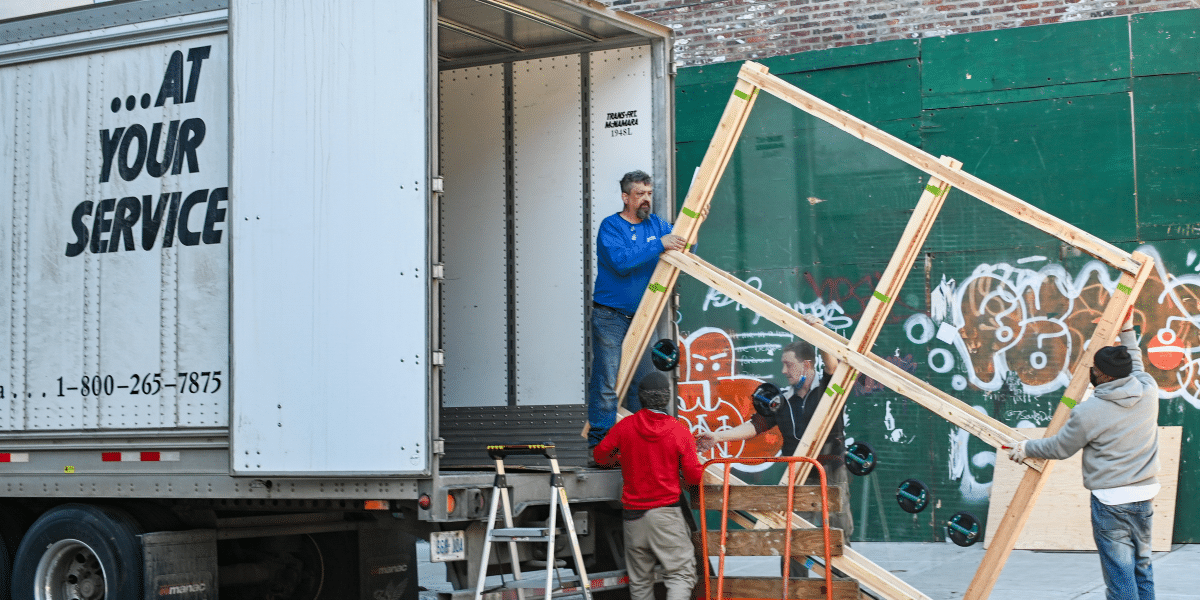Moving can be stressful, but with the right preparation and strategies, it doesn’t have to be. Whether relocating across town or the country, a pain-free move is possible when you follow some key steps. From organizing early to taking advantage of professional movers, here are six tips that can make your next move more efficient.
1. Start Early and Stay Organized
One of the biggest mistakes people make when moving is waiting until the last minute to start packing. The earlier you start, the less overwhelming the process becomes. Begin by decluttering and sorting your belongings. Create a moving checklist to break down tasks week by week, such as booking movers, transferring utilities, and packing non-essential items. Staying organized will reduce your stress and ensure you don’t forget important tasks.
Label boxes clearly, keep important documents in one place, and consider using color-coded labels to identify which room each box belongs to. This will save time and effort when unpacking.
2. Declutter Before You Pack
Packing up everything you own might seem like the easiest solution, but it’s actually a great opportunity to get rid of things you no longer need. Sort through your items and decide what to keep, donate, sell, or throw away. Reducing the amount of stuff you move makes packing easier and saves you money if you’re paying movers based on weight or volume.
To make a little extra cash, consider hosting a yard sale or selling items online. Anything that doesn’t sell can be donated to local charities.
3. Hire Professional Movers or Rent Equipment
While a DIY move can save money, it’s worth considering a professional moving company for the job, especially if you have a lot of heavy or fragile items. Moving companies can handle packing, lifting, and transporting your belongings, freeing up your time for other tasks. Be sure to get quotes from multiple moving companies and check reviews before making a decision. If you’re on a tighter budget, renting a truck and enlisting the help of friends can also be a good option.
If you decide to move yourself, rent proper equipment, such as dollies, moving straps, and blankets, to protect your items and prevent injury.
4. Pack Smart and Efficiently
Packing can be time-consuming, but packing efficiently will save you time and reduce the risk of damage to your belongings. Use sturdy boxes in various sizes and pack heavy items, such as books, in smaller boxes. Wrap fragile items with bubble wrap or packing paper, and use clothing, towels, or blankets to cushion delicate objects. Be sure to fill any gaps in boxes to prevent items from shifting during transit.
Label your boxes with the room they belong in and a brief description of their contents. This will make unpacking easier, especially if you need to find something quickly.
5. Keep Essentials Separate
When moving, it’s important to have easy access to essential items without having to dig through boxes. Pack a separate “essentials” box or bag with everything you’ll need for the first day or two in your new home. This can include toiletries, a change of clothes, medications, chargers, important documents, snacks, and basic kitchen supplies. These items will prevent frustration and help you settle in more quickly.
If you’re moving with children or pets, don’t forget to include their necessities, such as favorite toys, food, and comfort items.
6. Take Care of Yourself During the Move
Amid the chaos of moving, it’s easy to forget to take care of yourself. Moving day can be physically and mentally exhausting, so make sure you’re well-rested and hydrated and have snacks on hand to keep your energy levels up. Take breaks as needed, and don’t hesitate to ask for help from friends, family, or professional movers.
If you’re moving long distances, plan your travel route ahead of time and make sure to stop regularly to rest and stretch.
Conclusion
Moving doesn’t have to be a daunting experience. Starting early, staying organized, and following these six tips can make your move as smooth and pain-free as possible. Whether you’re tackling the move yourself or hiring professionals, a little planning goes a long way in ensuring a successful and stress-free transition to your new home.
Published by: Khy Talara



















